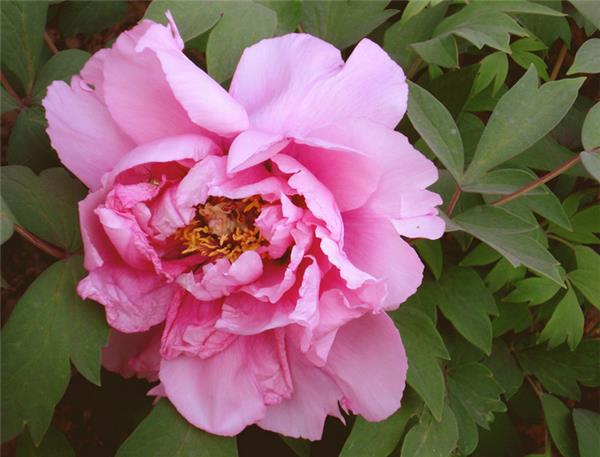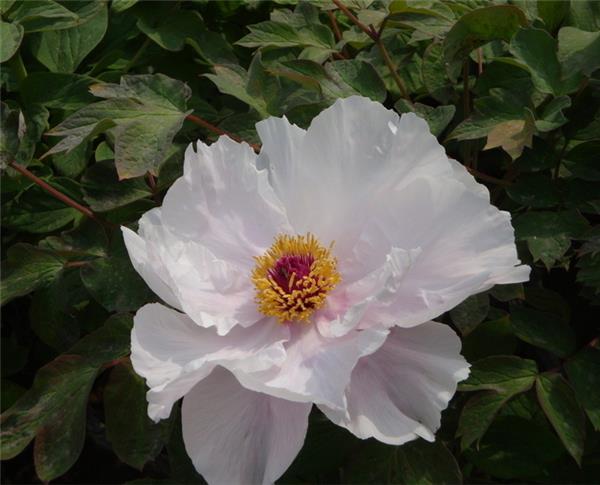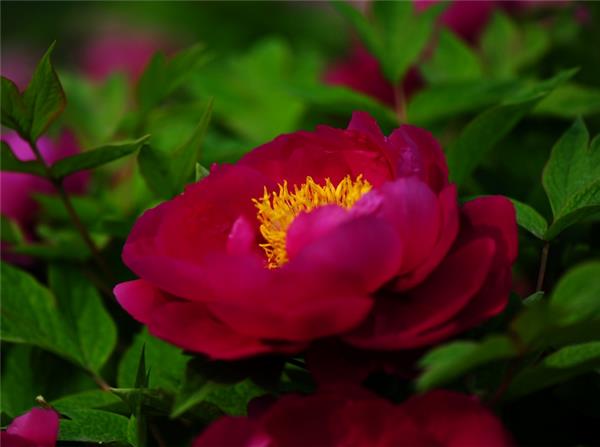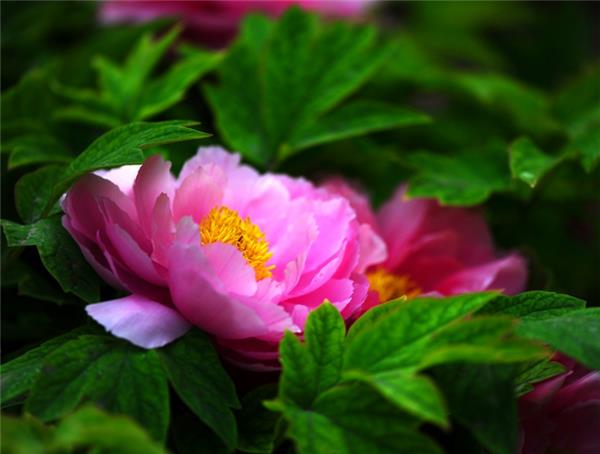Seven reasons for the yellowing of peony leaves
It is not difficult for flower friends who cultivate peonies to find that peony leaves sometimes turn yellow. what is the cause? Let's take a look at the seven reasons for the yellowing of peony leaves and their solutions.

Seven reasons for the yellowing of peony leaves
1. Overwatering: it is caused by excessive watering, which is characterized by no obvious change in old leaves and yellowing of young leaves.
Solution: water should be controlled immediately and water should be added properly.
2. Long-term water shortage: caused by water shortage and drought, it is characterized by yellow old leaves from bottom to top. If water shortage lasts a little longer, the whole plant will be yellow, or even die.
Solution: should be watered in time.
3. Soil bias: if peony grows in alkaline soil, the leaves will lose green and turn yellow. The symptoms begin between the new leaf veins, while the leaf veins, especially the main vein, remain green, and the phenomenon of yellow and green is very obvious. With the aggravation of the yellowing degree, the leaf veins gradually lost green, then the whole leaf turned white, the leaf margin scorched and the leaf fell off. In severe cases, the top of the branch withered, resulting in the death of the whole plant.
Solution: for this "yellowing" phenomenon, 0.2% to 0.3% ferrous sulfate solution can be sprayed on the leaf surface for 3 to 5 times, the concentration should not be too high, and should be used with.

4. Excessive fertilization of peony flowers: caused by excessive fertilization or high concentration; characterized by thick, shiny and uneven young leaves.
Solution: fertilizer, ploughing and watering should be controlled.
5. The long-term lack of fertilizer in peony flowers is caused by insufficient fertilizer, low fertilization concentration and long interval of fertilization; it is characterized by yellow young leaves and tender stems, and if it is not fertilized in time after seeing this phenomenon, it will cause yellow leaves and even death of the whole plant.
Solution: for flowers that are short of fertilizer, do not apply a large amount of thick fertilizer at one time, so as not to cause root burning.

6. Rotten roots: the cultivation land of peony is mostly continuous stubble for many years, in which there are many pathogens, especially Fusarium oxysporum in fungi, which cause the root and stem base of peony to rot, so the ability of absorbing water and fertilizer is weakened, and the lower leaves gradually turn yellow and fall off or scorch upward, while the color of peony shoot center and new leaves is still normal. This is the yellow leaf symptom of root rot of peony during drought.
Solution: maintain the permeability of the soil and take good drainage measures.
7. Diseases and insect pests: peony is mostly harmed by underground pests such as grubs, mole crickets and nematodes. The leaves are green and yellowish, even scorched. The main characteristic of this symptom is the yellowing and scorching of the leaves of a single plant or several plants in a certain place.
Solution: when this symptom is found, it should be checked in time and quickly applied to control underground pests.

Matters needing attention in peony culture
1. Extensive management and simple maintenance. In addition to the strong light at noon in midsummer, adequate light should be given at other times of the year, especially in winter.
There is a large water demand in the peak growth period from February to September, so it is necessary to often water and spray to increase humidity, and gradually reduce the amount of water after autumn to improve the cold resistance of the plant.
3, like the semi-shady environment, if the light is too strong or insufficient in the place, the leaves will easily become light green or yellowish green, lack of vitality, lose their due ornamental value, or even die; such as direct sunlight, dry air, it is most likely to cause scorching, so it should be placed in a cool and ventilated place and pay attention to maintaining environmental humidity.
4. diseases and insect pests are not easy to occur, but if the basin soil is stagnant and poorly ventilated, it may not only lead to root rot, but also root rot, so attention should be paid to spraying prevention and control.
5. Put it in the ventilated position with sufficient scattered light, because winter is not the growing period of peony orchid, in order to prevent and cure the rotten root, watering must be thoroughly watered, depending on the situation.
Related
- Wuhan Hospital Iron Tree Blooming Result Was Instantly Frightened by the Gardener Master
- Which variety of camellia is the most fragrant and best? Which one do you like best?
- What is the small blue coat, the breeding methods and matters needing attention of the succulent plant
- Dormancy time and maintenance management of succulent plants during dormancy
- Minas succulent how to raise, Minas succulent plant pictures
- What are the varieties of winter succulent plants
- How to raise succulent plants in twelve rolls? let's take a look at some experience of breeding twelve rolls.
- Attention should be paid to water control for succulent plants during dormant period (winter and summer)
- Watering experience of twelve rolls of succulent plants
- Techniques for fertilizing succulent plants. An article will let you know how to fertilize succulent plants.



